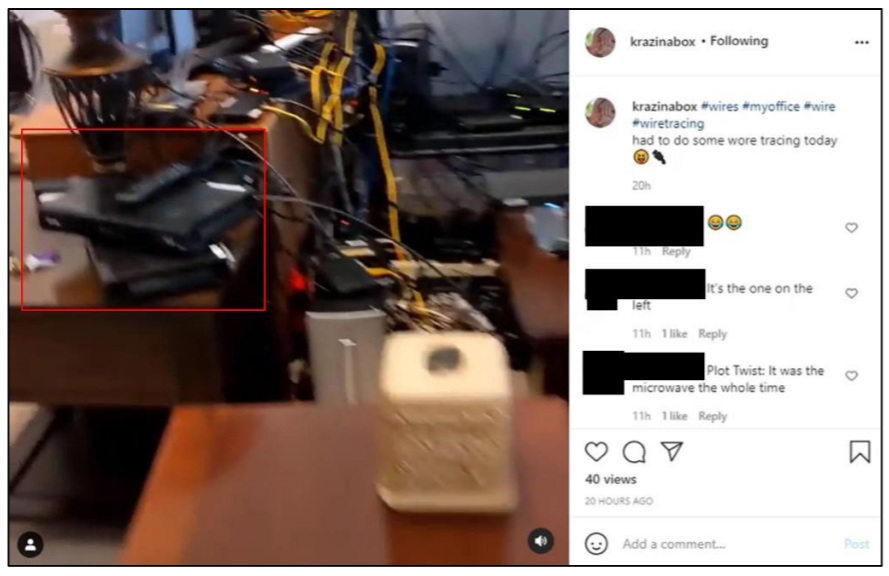Hollywood and Netflix Sue repeat pirate IPTV player for massive copyright infringement * TorrentFreak

 Last summer, customers of the pirate IPTV service Region 51 began receiving emails indicating that the service had been shut down.
Last summer, customers of the pirate IPTV service Region 51 began receiving emails indicating that the service had been shut down.
“We’ve had to make this very difficult decision, to shut down Area 51. We’ve been so successful, and we wouldn’t have been able to do it without agents like you,” the email began.
While this initially seemed like bad news to subscribers, soon customers of the closed service began receiving emails from a service called Singularity Media informing them that their accounts had been hacked and that all logins would work as before. Soon after, Singularity also shut down.
Last August, TorrentFreak revealed that Area 51 had been shut down by the Alliance for Creativity and Entertainment. This event was accompanied by a settlement agreement, which included a clause that the Area 51 operator could not launch any new infringing services.
It seems that this agreement was not respected, which could lead to serious consequences.
The Hollywood Giants file a massive copyright infringement lawsuit
In a California court yesterday, Warner Bros. And several Universal, Amazon, Columbia, Disney, Netflix, Paramount, Sony and other content creators are suing Jason Tusa, the alleged operator of Area 51 and three other pirate IPTV services.
According to the complaint, the plaintiffs first discovered that Tusa was violating their rights through Area 51, a service that received three million visits between June 2019 to June 2020, making it the “largest stand-alone pirate IPTV service” through traffic. in the United States of America.
After identifying Tusa, his sister, and now deceased wife as the operators of Area 51, prosecutors issued a cease and desist order for their illegal activities. While negotiating the settlement through an attorney, Jason Tosa was allegedly already working on a replacement.
On July 1, 2020, Tusa reportedly registered the Singularitymedia.net domain and created a close mirror of Area 51 sites. As previously mentioned, Area 51 customers have received emails saying that Singularity will be taking over. On July 8, prosecutors contacted Tosa again, requesting a halt to the singularity, which subsequently fell.
Months later on October 12, a confidential settlement agreement was reached regarding Area 51 and exclusivity services that included promises by Tusa not to operate or assist in the operation of another infringing service. According to the plaintiffs, that was not honored.
Tosa has allegedly launched two more services
Before signing the agreement, Tosa launched his third offending service. Digital UniCorn Media (DUM) offered similar pricing and programming to its predecessors, but despite trying to obscure his connections to the service, the studios were able to link Tusa to the platform by catching his many faults.
A domain for the new service carried an unauthenticated email associated with Tusa and it was noted that he had uploaded a video of an inflatable unicorn to YouTube and commented on it using his personal and UniCorn Media accounts. Prosecutors contacted Tosa’s attorney to report a breach of the settlement agreement, and while Tosa denied contact, he also took down the video. After that, DUM went offline, with Tusa posting on Instagram that the service was gone for good.
According to the lawsuit, Tusa launched a new service called Altered Carbon but despite taking a number of steps to distance himself from the platform, the studios say they’ve been able to tie him to it in a number of ways.
Alleged Tosa links to modified carbon
While a single piece of circumstantial evidence wouldn’t be enough to determine that Tusa is in control of Altered Carbon, the studios reveal a laundry list of points at which they seem to be doing it all together.
Altered Carbon uses the same slogan as DUM and prosecutors saw him discussing the service on Telegram. The IP addresses used by the service are close to those used by DUM since they use the same host but the complaint is still there, especially when it comes to activity and mention on social media. Some other evidence is more problematic.
Tusa uses legitimate cable operations for source streams
“Tosa’s public online postings show that he obtained the streams running Variable Carbon through a process of redirecting licensed transmissions from legitimate cable services,” the complaint reads.
“A video posted to Tusa’s social media account shows it stringing together a series of cable boxes, which indicates that Tusa uses the signals routed through these cable boxes as a source for its transgressive streams.”

“Altered Carbon is nearly identical to DUM, except for the name and superficial design changes. Like DUM, many of Altered Carbon’s US channels have ads localized to Tosa’s hometown of Naples, Florida,” the complaint adds, suggesting the services use the same setup. capture.
Altered Carbon has an affiliate program
According to the complaint, Tusa operates a program that enables Altered Carbon to reach a broader audience. By selling “pool credits” to affiliates for less than the retail price, they can then sell the service to their customers at a profit. For example, 70 credits (each worth a month of service) sell for $6.42 each while 150 credits sell for $4.66. They are sold at whatever price the seller chooses.
“The Tusa affiliate network is increasing his client base and profits. More affiliates means more customers buying illegal access to copyrighted works, more money flowing into Tusa’s pockets, and more infringement of copyrighted work.” Studios writes.
Tusa is infringing and profiting from exploiting plaintiffs’ copyrighted works, and he refuses to stop. When plaintiffs confront Tusa with proof that he is running an infringing service, Tusa shuts it down and starts another one, which leads to a repeat of cat-and-mouse games. The plaintiffs are irreparably damaged by the infringement. Tosa is insolent in ways that cannot easily be accounted for or remedied by monetary compensation.”
Claims of copyright infringement and breach of contract
While the studios are clearly unhappy with Altered Carbon’s service, they’re also concerned about Tusa’s violations of its settlement agreement. Plaintiffs say he mocked their rights and by continuing to start new services, he is sending a message to other hacking services that they need not take plaintiffs’ rights seriously. As a result, the lawsuit is already shaping up to be a lesson in compliance.
Prosecutors say Tosa violated their rights by distributing at least 110 copyrighted works including the Dunkirk, Harry Potter, Joker, Tenet and The Hulk movies, as well as many other major titles. They also allege violations related to TV shows including The Office, Law & Order, Friends and The Big Bang Theory.
Alleging direct and willful copyright infringement, the complaint seeks a maximum of $150,000 in damages per title. Alleging copyright infringement regarding the channels the service provides 24/7, the studios are seeking $150,000 in damages for each title. For willfully inciting infringement of copyrighted works by customers (and by encouraging affiliates to promote the service for infringement), the complaint also seeks $150,000 per work.
According to the studios, the settlement agreement that Tusa previously signed required him to cease and desist, and since he failed to do so, he was in breach of contract. The exact details of the agreement are not public but it appears to have come with a clause that Tusa would pay a settlement amount in the event of a breach.
Demands, reservation orders, domain takeovers
Before any trial, the complaint seeks preliminary and permanent injunctions to prevent Tosa from continuing his operations. The studios also want his equipment confiscated along with any and all documents relating to the infringement of their rights.
There are also demands for Altered Carbon’s domains of services to be handed over to the studios, which is a common request in such cases.
The complaint and list of copyright works can be found here and here (pdf)

